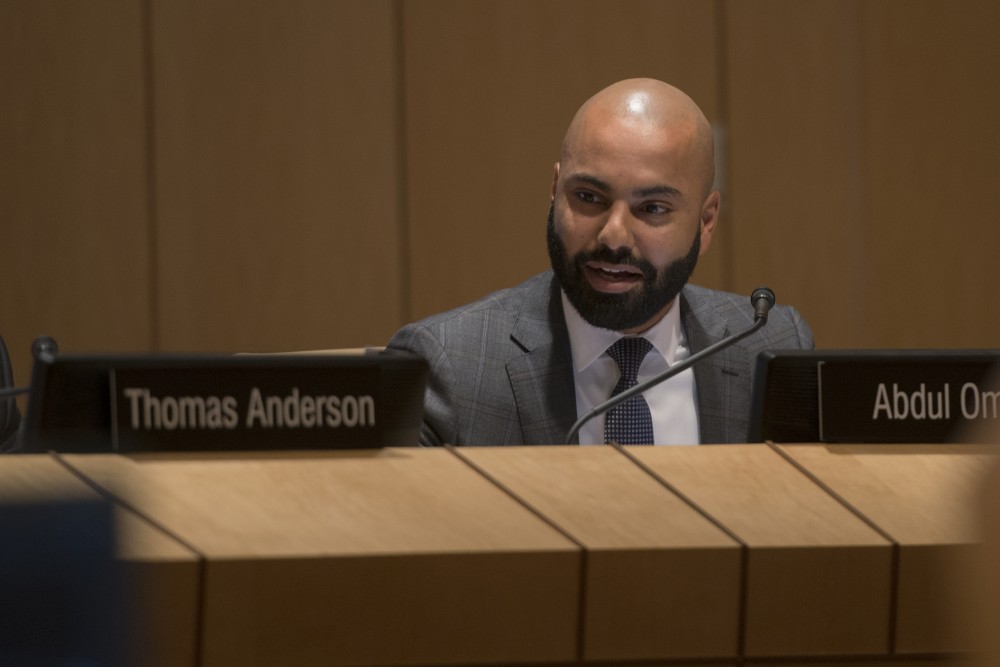The search for the next University of Minnesota president has raised questions regarding the candidate vetting process amid larger concerns about a lack of transparency.
Some faculty and transparency advocates say they’re concerned about plans to vet candidates in light of the University’s shaky history hiring high-ranking officials. The University says there will be rigorous vetting of candidates, but officials admit it can be difficult to catch every red flag.
The University’s screening process for top positions involves a balance between transparency and protecting the confidentiality of candidates. But critics argue limited transparency can worsen an already complicated screening process.
During the University’s presidential search, more in-depth vetting, such as reaching out to former employers and co-workers, will likely occur later in the selection process.
“It is standard hiring practice for positions of this type to verify credentials, contact references, review credit history and conduct civil, criminal and DMV background checks at the appropriate time in the hiring process — either when candidates provide consent or when candidates are announced publicly as finalists,” the Office of the Board of Regents said in a emailed statement to the Minnesota Daily.
The regents’ office did not provide any additional information about when or how that process is expected to take place. Regent Abdul Omari, chair of the presidential search advisory committee, was not available for comment.
Some of the responsibilities for vetting applicants — including reaching out to contacts about individual candidates — fall on Omari and AGB Search, the firm selected by the regents to help recruit candidates, according to the board office’s statement. However, it is unclear how those responsibilities will be split. Members of the search committee won’t take part in this type of vetting until later in the process, the regents’ office said.
Rod McDavis, the managing principal of AGB Search, laid out the firm’s plans for vetting at a University Senate meeting last month.
“We’re going to utilize a lot of technology,” McDavis said at the meeting. He said the firm will conduct a LexisNexis search, scan social media and Google search candidates.
“But most importantly, we talk to people,” he said at the meeting. “Not only do we talk to people who are on the reference list, but we talk to people who are off the reference list.”
McDavis and other members of AGB Search did not respond to multiple requests for comment.
Leann Shore, a professor of occupational therapy and a University senator, who questioned McDavis about vetting at the meeting, said the firm’s answer did not satisfy her.
She said the #MeToo Movement underscores the importance of vetting candidates applying for the University’s top position.
“In our current society, vetting is extremely important,” she said. “I think there’s a history of universities making bad choices and not using the vetting system process.”
In the past several years, high-profile resignations at the University, including the 2015 resignation of Athletic Director Norwood Teague, have raised concerns about the screening process for high-level officials.
“Our approach to vetting job candidates at all levels of the organization probably has become more comprehensive,” said University spokesperson Chuck Tombarge. “It’s safe to say previous experiences have helped the University refine that research to make sure we’re doing it comprehensively and fully.”
However, he said it can be difficult to find every potential issue.
“In some cases, accusations against someone at previous institutions may not necessarily be public information,” Tombarge said. “While the searches we do hopefully turn up any red flags early before we hire anyone, it’s not 100 percent.”
Higher education officials say privacy helps ensure the best candidates will apply to positions without jeopardizing their current jobs. Under the Minnesota Data Practices Act, the names of applicants are not public until candidates are named as finalists.
But the University often oversteps its bounds in protecting candidates’ privacy, said Marshall Tanick, a constitutional and employment law attorney, who has criticized the hiring process of top University officials.
Tanick said limited transparency, especially protecting the names of finalists during the search, can negatively impact vetting. Opening the process — publicly naming multiple finalists sooner — allows people to come forward and raise possible concerns about candidates, he said.
“Transparency increases the likelihood of good vetting,” he said.
For Shore, it’s important to ensure people have the chance to come forward if there are red flags.
“People need to have the opportunity to tell their truth,” she said. “If we don’t even know who’s applying, we may not even have that opportunity.”
Shore said those involved in the search process are not doing enough to promote transparency — and she’s worried that approach will hurt vetting.
“We don’t know how they’re vetting,” she said. “We don’t know what the process is.”

















